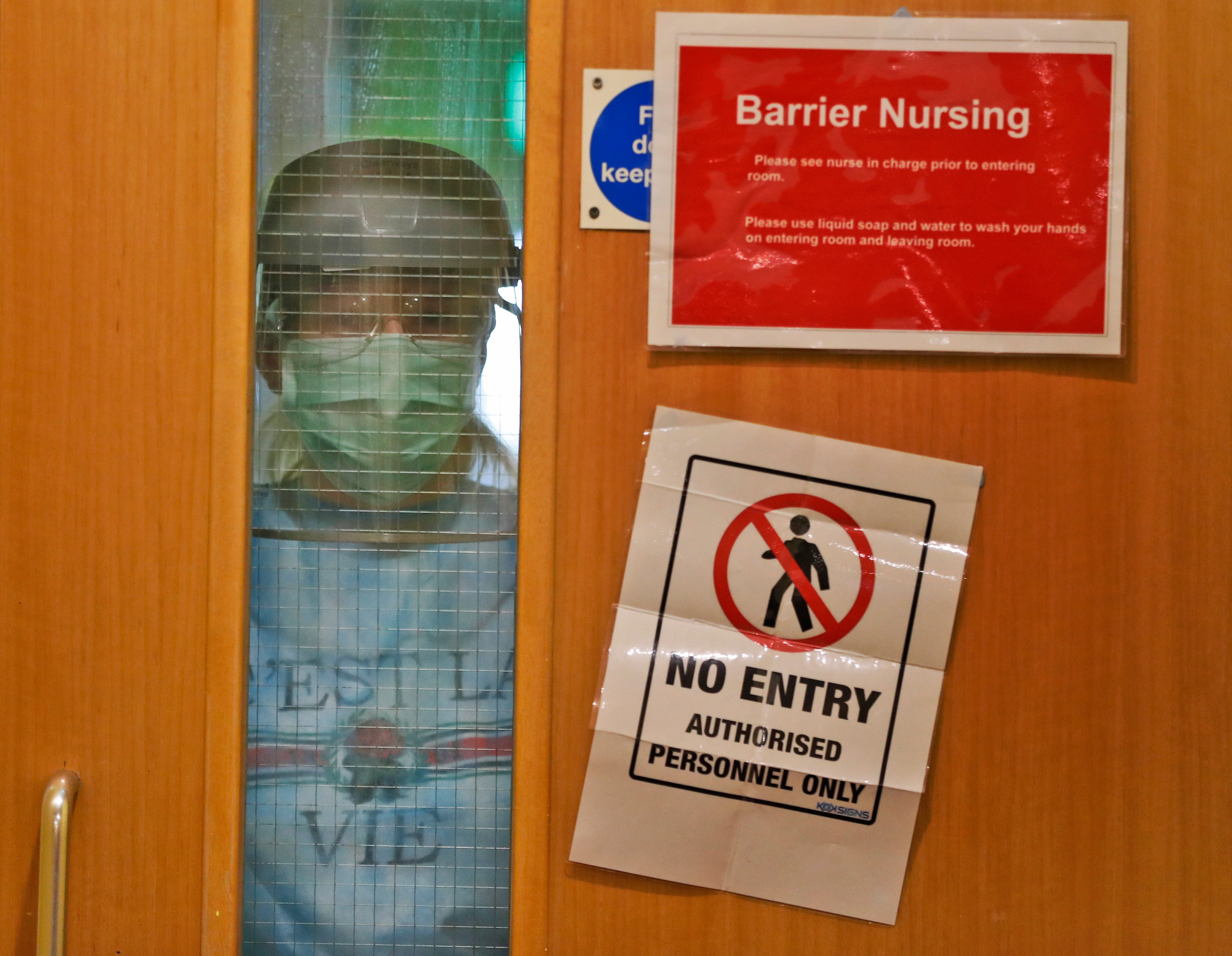Court says UK's nursing home COVID-19 policy was illegal
A British court has ruled that the government’s decision to discharge untested patients from hospitals into nursing homes early in the coronavirus pandemic was illegal

Your support helps us to tell the story
From reproductive rights to climate change to Big Tech, The Independent is on the ground when the story is developing. Whether it's investigating the financials of Elon Musk's pro-Trump PAC or producing our latest documentary, 'The A Word', which shines a light on the American women fighting for reproductive rights, we know how important it is to parse out the facts from the messaging.
At such a critical moment in US history, we need reporters on the ground. Your donation allows us to keep sending journalists to speak to both sides of the story.
The Independent is trusted by Americans across the entire political spectrum. And unlike many other quality news outlets, we choose not to lock Americans out of our reporting and analysis with paywalls. We believe quality journalism should be available to everyone, paid for by those who can afford it.
Your support makes all the difference.A British court ruled Wednesday that the government’s decision to discharge hospital patients into nursing homes without testing them for COVID-19, which led to thousands of deaths early in the pandemic, was illegal.
Two High Court judges said the policy from March and April 2020 was unlawful because it failed to take into account the infection risk that non-symptomatic carriers of the virus posed to older or vulnerable people.
The judges said officials did not consider other options, including keeping such patients separate from other nursing home residents for a time as much as practically possible.
“This was not a binary question – a choice between on the one hand doing nothing at all, and on the other hand requiring all newly admitted residents to be quarantined,” the judges said.
The ruling came in response to a lawsuit by two women whose fathers died when the virus swept through the homes where they lived. Their lawyers said the decisions that allowed COVID-19 to spread among the elderly and vulnerable was “one of the most egregious and devastating policy failures in the modern era.”
The judges backed some parts of the lawsuit's arguments but rejected claims made under human rights legislation and against the National Health Service.
Like many countries, the U.K. had little capacity to test for the coronavirus when the pandemic began, and many asymptomatic patients were released from hospitals back into care homes, where COVID-19 soon ran riot.
Around 20,000 people died with the virus in British nursing homes during the initial months of the country's first outbreak in 2020.
The health secretary at the time, Matt Hancock, has said the government did all it could to keep people safe during the biggest public health crisis in decades.
Hancock’s office said in a statement that the court ruling cleared him of wrongdoing and found he "acted reasonably on all counts.” It said Hancock wished that health officials had told him sooner all they knew about asymptomatic transmission of the virus.
Claimant Cathy Gardner, whose father died in April 2020, said “my father and other residents of care homes were neglected and let down by the government.”
“Matt Hancock’s claim that the government threw a protective ring round care homes in the first wave of the pandemic was nothing more than a despicable lie of which he ought to be ashamed and for which he ought to apologize,” Gardner said.
There was no immediate response from the government.
Prime Minister Boris Johnson has set up an independent public inquiry into Britain’s handling of the pandemic, though it has yet to begin. More than 174,000 people have died in Britain after testing positive for the virus, the highest toll in Europe after Russia.